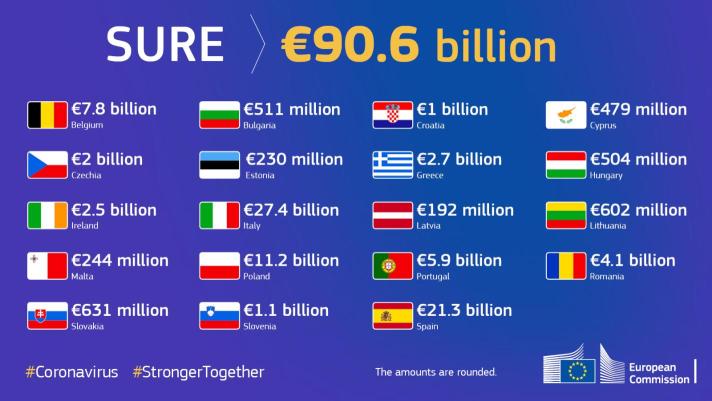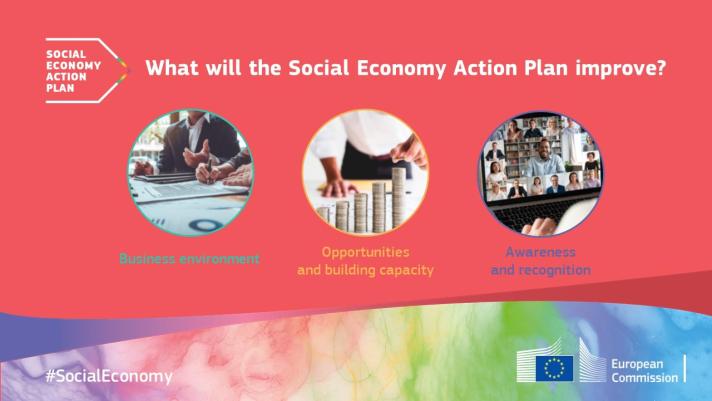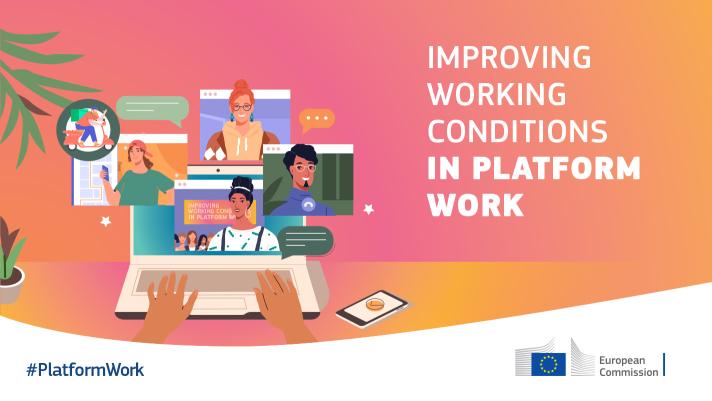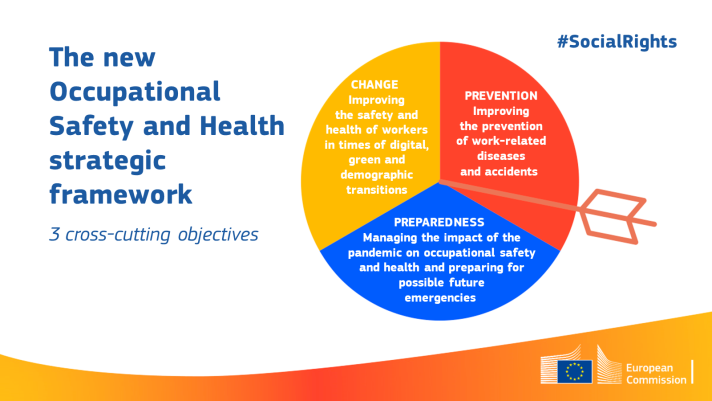Creating jobs, including in the emerging green and digital sectors, is one of our main priorities.
By 2030, at least 78% of the population aged 20 to 64 should be in employment.
Creating job opportunities in the real economy
Effective Active Support to Employment (EASE)
The Commission is committed to helping Member States maintain and create jobs for a fair, inclusive and resilient recovery from the coronavirus crisis. Short-time work schemes and similar job retention measures have saved jobs.
The Effective Active Support to Employment (EASE) initiative will provide guidance to Member States on creating a job-rich recovery, as well as more, greener and more digital jobs. To help companies and people, Member States should develop coherent policy measures in line with the three EASE strands:
- Time-limited hiring and transition incentives and support to entrepreneurship
- Upskilling and re-skilling measures, such as short duration trainings to upskill unemployed or inactive young people
- Enhanced support by employment services for job transitions
Youth employment support
Young people deserve all possible opportunities to reach their full potential and to thrive in the green and digital transitions. Young people often face a difficult start in the labour market and this has been emphasised by the coronavirus pandemic. In July 2020, the Commission launched Youth Employment Support: a Bridge to Jobs, which provides concrete policy guidance to Member States to help increase youth employment levels. The Youth Employment Support package is built around four strands that together provide a bridge to jobs for the next generation:
- a reinforced Youth Guarantee
- future-proofing the EU’s vocational education and training policy
- a renewed impetus on apprenticeships
- additional measures
Support to mitigate unemployment risks in an emergency (SURE)
Short-time work schemes have been effective in preserving employment in the context of the pandemic and should remain in place where necessary. The European instrument for temporary support to mitigate unemployment risks in an emergency (SURE) has helped protecting citizens. It provides loans of up to €100 billion to fund short-time work schemes and similar measures, in particular for the self-employed. The Commission will evaluate the successful experience of SURE.
Boosting the social economy and creating jobs
On 9 December 2021, the European Commission presented an Action Plan to help the European social economy thrive, tapping into its economic and job-creation potential, as well as its contribution to a fair and inclusive recovery, and the green and digital transitions.
Making work conditions fit for the future
Adequate minimum wages
Ensuring that jobs pay an adequate wage is essential to guarantee decent working and living conditions for workers and their families, as well as to build fair and resilient economies and support inclusive growth. In October 2020, the Commission proposed a Directive to ensure create a positive dynamic for minimum wage protection across the EU while promoting collective bargaining and social dialogue.
Protecting people working online
On 9 December 2021, the European Commission proposed a set of measures to improve the working conditions in platform work and to support the sustainable growth of digital labour platforms in the EU.
The accelerated digitalisation of workplaces and telework offer immense opportunities but we must also be mindful of the risks they bear. The Commission will propose EU rules for the uptake of trustworthy Artificial Intelligence use in the EU economy, including in the workplace for all forms of work.
As many of us rely more and more on remote forms of working, this can have an impact on our working hours and the ability to separate working life from personal time. The Commission will ensure an appropriate follow up on the European Parliament’s recommendations on the right to disconnect.
Occupational safety and health standards for a new world of work
Improving health and safety standards at work is essential to protect workers’ health. It is also good for the economy: Work-related accidents and illnesses lead to an estimated yearly loss of around 3.3% of GDP in the EU. Over the past decade, EU rules have considerably improved working conditions decreasing the incidence rate of fatal accidents at work by nearly 30%. However, more remains to be done.
The COVID-19 pandemic has shown how crucial occupational health and safety is for protecting workers' health, for the functioning of our society, and for the continuity of critical economic and social activities. In this context, the Commission has adopted the EU strategic framework on health and safety at work 2021-2027. It sets out the key actions needed to improve workers' health and safety over the coming years.
This new strategy focuses on three cross-cutting objectives, namely managing change brought by green, digital and demographic transitions as well as changes to the traditional work environment, improving prevention of accidents and illnesses, and increasing preparedness for any potential future crises.
Labour mobility
Mobility is at the heart of the European project. The Commission pursues an ambitious agenda for fair labour mobility. Key recent actions include:
- the reform of the European job mobility portal (EURES)
- the review of the rules on posting of workers
- the revision of social security coordination rules
- policy guidance and new social rules for road transport mobile workers (including on posting of drivers)
- the fight against undeclared work
- the creation of a European Labour Authority (ELA)
We will now focus on making sure that Member States put these rules in place. The European Labour Authority will help in this endeavour.
The coronavirus pandemic has shone a light on the precarious working conditions of many mobile workers, including seasonal workers. Protecting and improving their rights and working conditions, while making labour mobility work seamlessly for businesses and administrations, is key for a well-functioning internal market. The Commission adopted guidelines on the free movement of workers and on seasonal workers in the EU in the context of the coronavirus pandemic.





